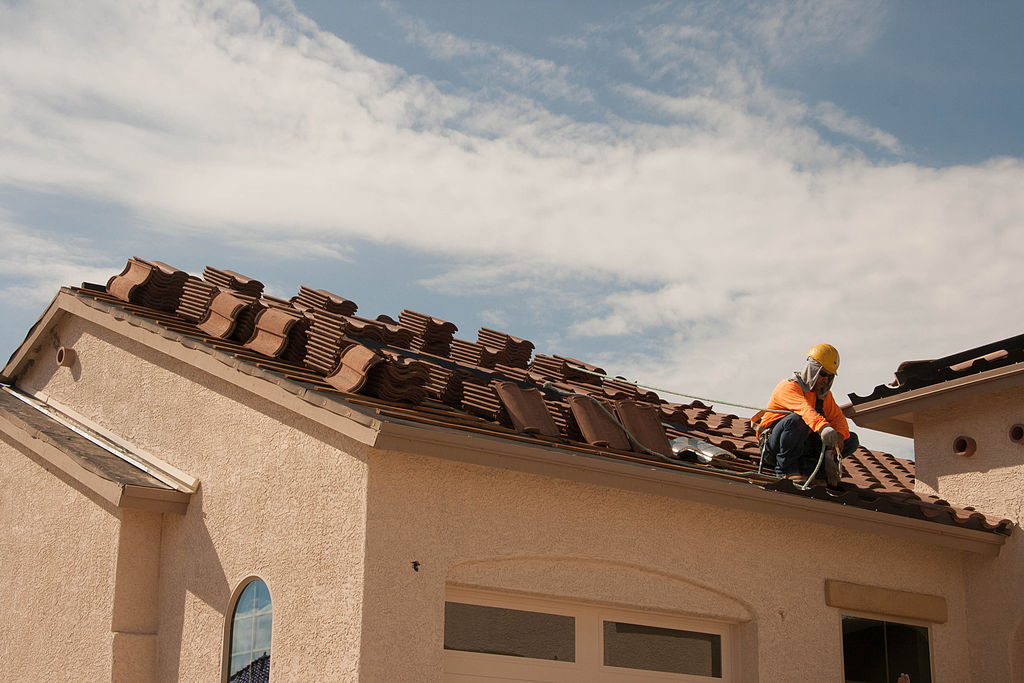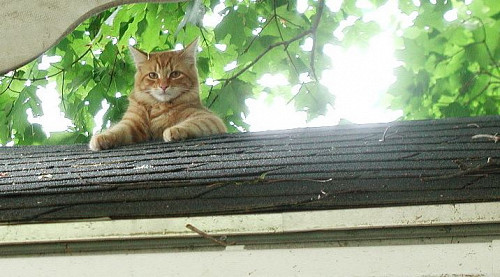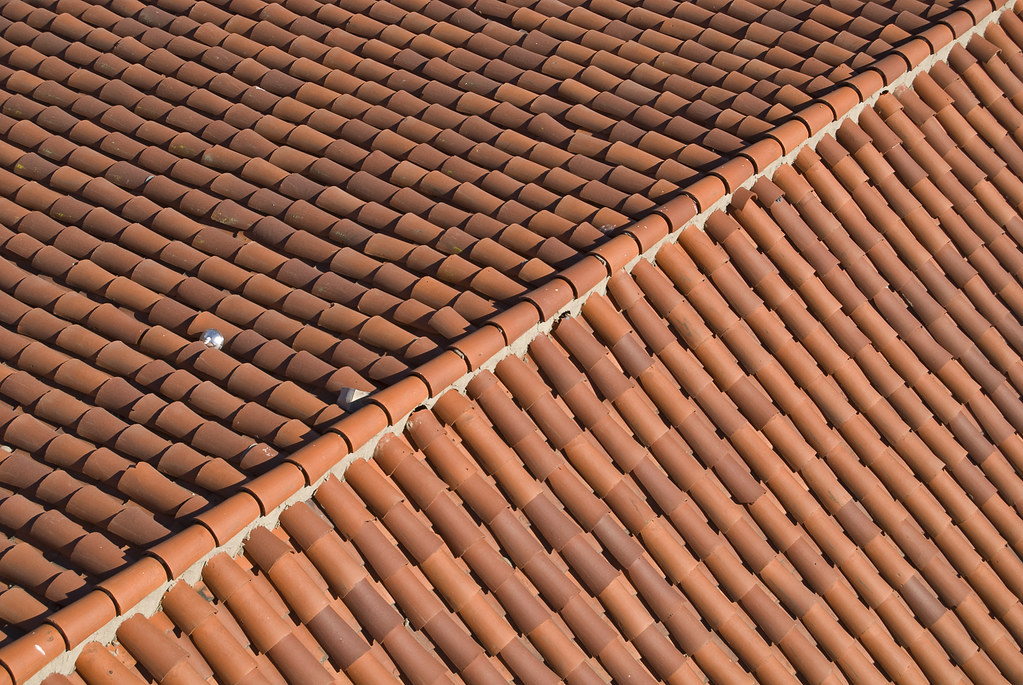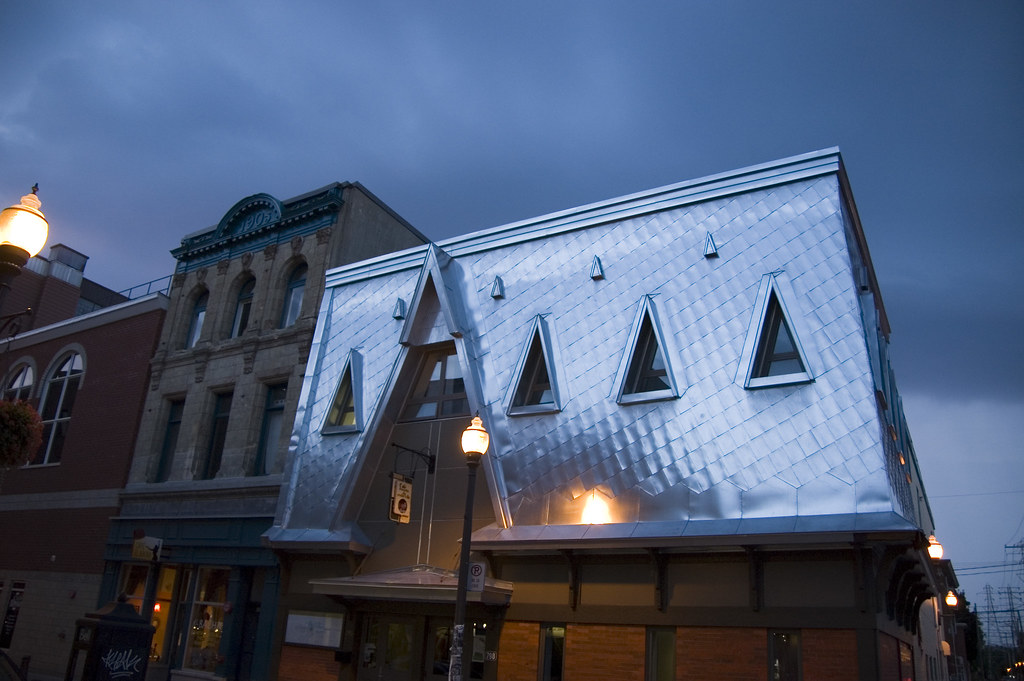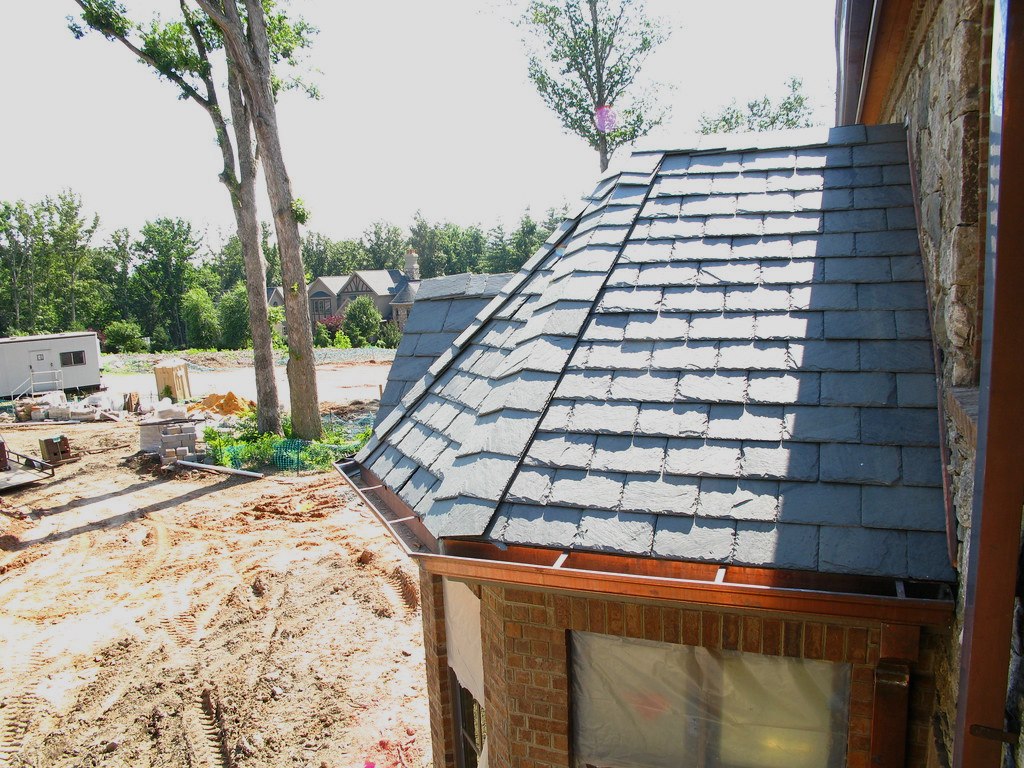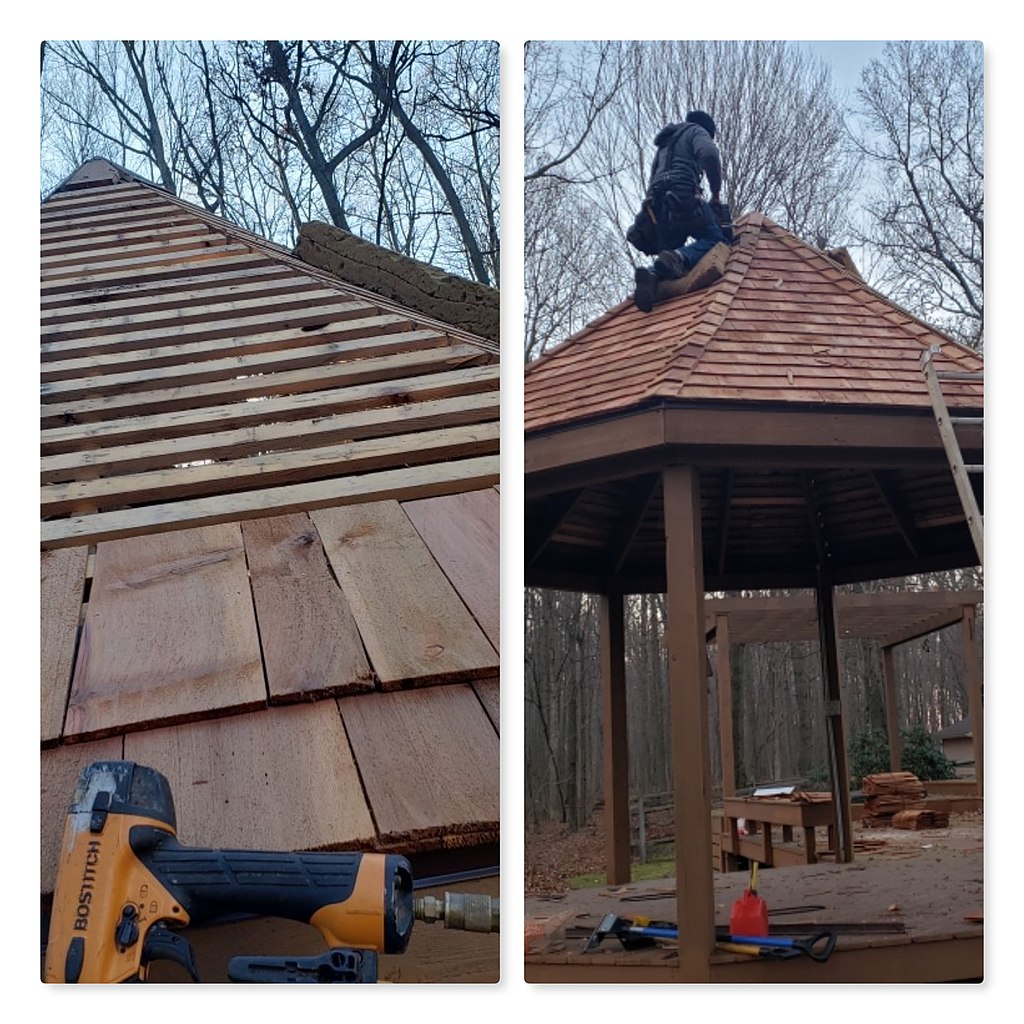Roof Types Factsheet: Pros & Cons of 10 Popular Materials
Are you looking to install a new roof this year? Jumpstart the project – prepare yourself with the facts on roofing materials before you even hire local roofers . Here’s a guide to pros and cons of 10 popular roof types.
- Asphalt shingles
ABOUT: Most common of all roof types in the USA today, asphalt shingles are the roofing material on almost 80% of American homes. Asphalt saturates both sides of their paper or fiberglass base, which is then topped with a layer of mineral granules. Choose between the popular 3-tab asphalt shingle and the longer-lasting architectural shingle (also called “laminate shingles”).
PROS: Affordable and easy to install. Provide a quick upgrade on a house for sale.
CONS: Only suitable for steeply sloping roofs. Don’t hold up well to severe temperature changes or intense, direct sunlight. Relatively short lifespan of about 20 years.
- Asphalt roll
ABOUT: Also known as “torch-on roofing.” Similar to asphalt shingles, but applied as one piece.
PROS: Simple, quick installation means lower cost.
CONS: Roof repair is not so easy. Lasts only 15 years on average.
- Clay roof tiles
ABOUT: Manufactured from clay, which is shaped and baked. AKA “terracotta roof tiles.”
PROS: Natural material. Has an attractive orange-brown color or may be dyed. Can be formed into a variety of decorative shapes. Relatively long lifespan of 40+ years.
CONS: Fire–resistant but not totally fireproof. Consider whether your building structure can bear the weight; you may need to have additional framing added.
- Concrete roof tiles
ABOUT: Molded from concrete.
PROS: Available in an interesting range of shapes and colors. Fireproof.
CONS: Heavy weight. Not as long-lasting as clay roof tiles
- Metal
ABOUT: In the form of a single flat panel or shingles. Materials include aluminum, copper, steel, tin, and zinc.
PROS: Fireproof, hail resistant, durable, lightweight, excellent at shedding snow, reflective of sunrays to stay cooler in summer. Can last 50 years or more.
CONS: Metal roof types tend to be noisy during rain and hail storms. Steel must be treated to prevent corrosion.
- Rubber
ABOUT: Rubber roofing is available in thicknesses ranging from 1 ¾” to 3 ½”; the thickness you’ll need depends on factors such as your roof pitch.
PROS: Good insulator, fire-resistant, low maintenance, eco-friendly – especially if made from recycled tires. Resilient and excellent at holding up to hailstorms. Lifespan of about 50 years.
CONS: Unattractive flat black appearance … which can, however, be improved by coating with acrylic paint or purchasing rubber roofing strips to cut into “shingles.”
- Slate
ABOUT: Composed of tiles cut from natural stone.
PROS: Fireproof, water and weather resistant, recyclable natural material. Increase your home’s value. Often last more than 100 years.
CONS: Expensive to install. Also costly and complicated to repair, requiring a slate tile specialist.
- Solar tiles
ABOUT: Roof tiles that incorporate solar technology.
PROS: Eliminate the hassle of installing solar panels atop an existing roof, yet still convert solar energy to electricity for your home. Simplify roof repair. Great for harsh climates, as they stand up to strong winds and heavy hail.
CONS: High cost to install solar tiles, requiring a specialist.
- Tar and gravel
ABOUT: After molten asphalt is used to “glue” layers of tarpaper roofing material in place, the roof is laminated and coated with gravel for additional protection.
PROS: One of the few roof materials suitable for a low-slope or flat roof. Fairly inexpensive.
CONS: Short lifespan compared to other roof types – up to 20 years.
- Wood shingles or shakes
ABOUT: Wood roofing shingles are machine cut; shakes are hand cut. Usually cedar or redwood.
PROS: Excellent insulators. Add curb appeal and resale value. Last upwards of 25 years with the right maintenance.
CONS: Pricey. Require expert installation. High maintenance. May require fire resistant treatment to comply with local code. In addition, you need to treat wooden roofing materials against mold and termite infestation.
Laura Firszt writes for networx.com.
Looking for a Pro? Call us (866) 441-6648

Roofing Average Costs
Roofers Experiences

Roof Replacement: How To Get Your Money’s Worth

Come See My New Metal Roof! It Is Fantastic!

